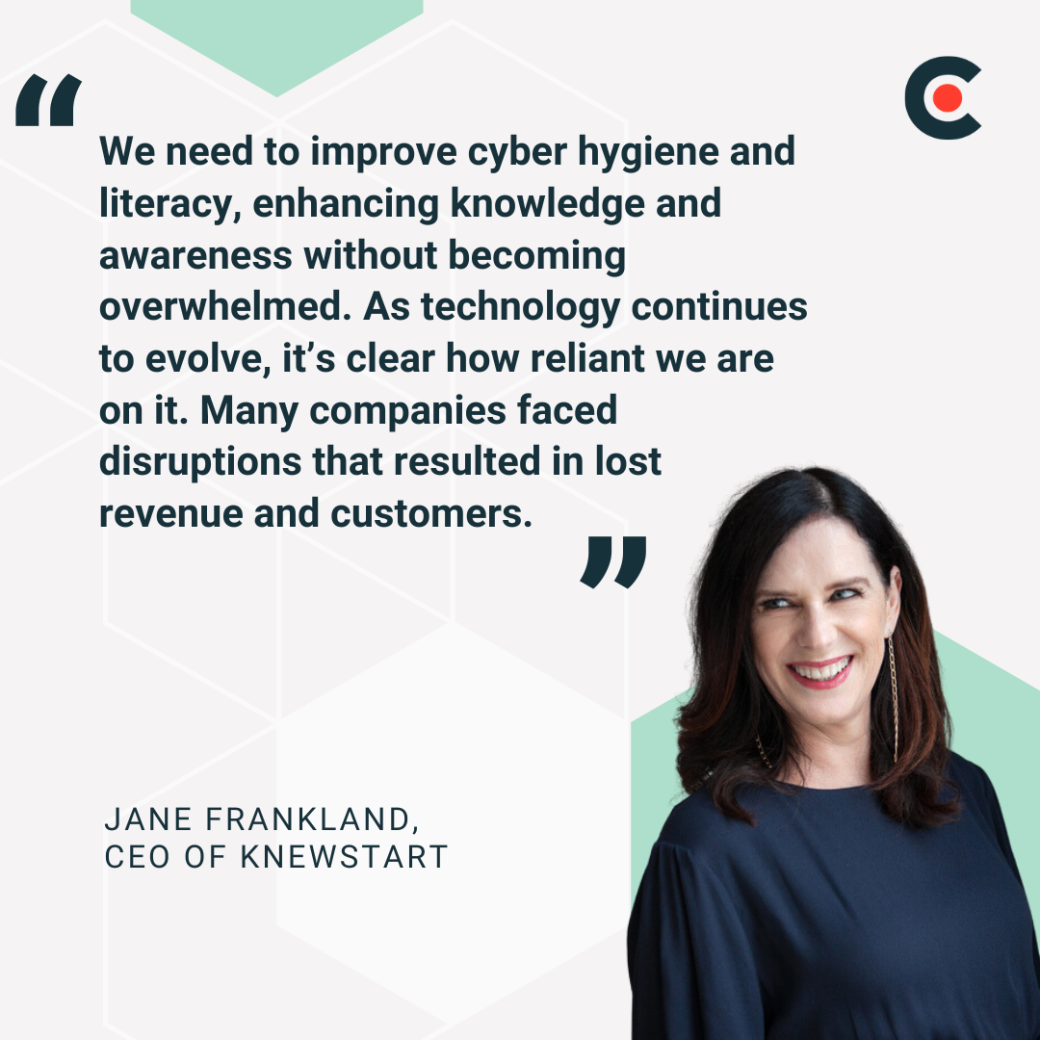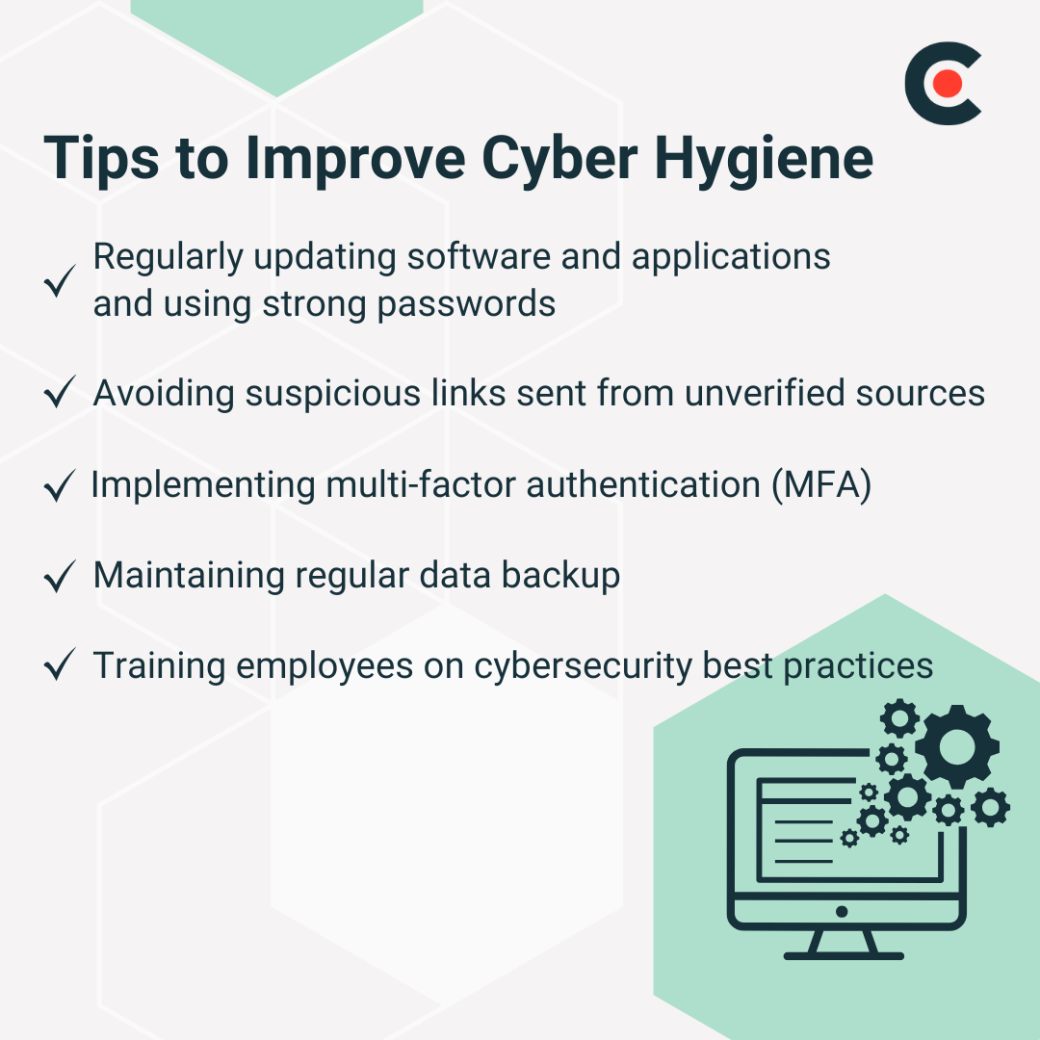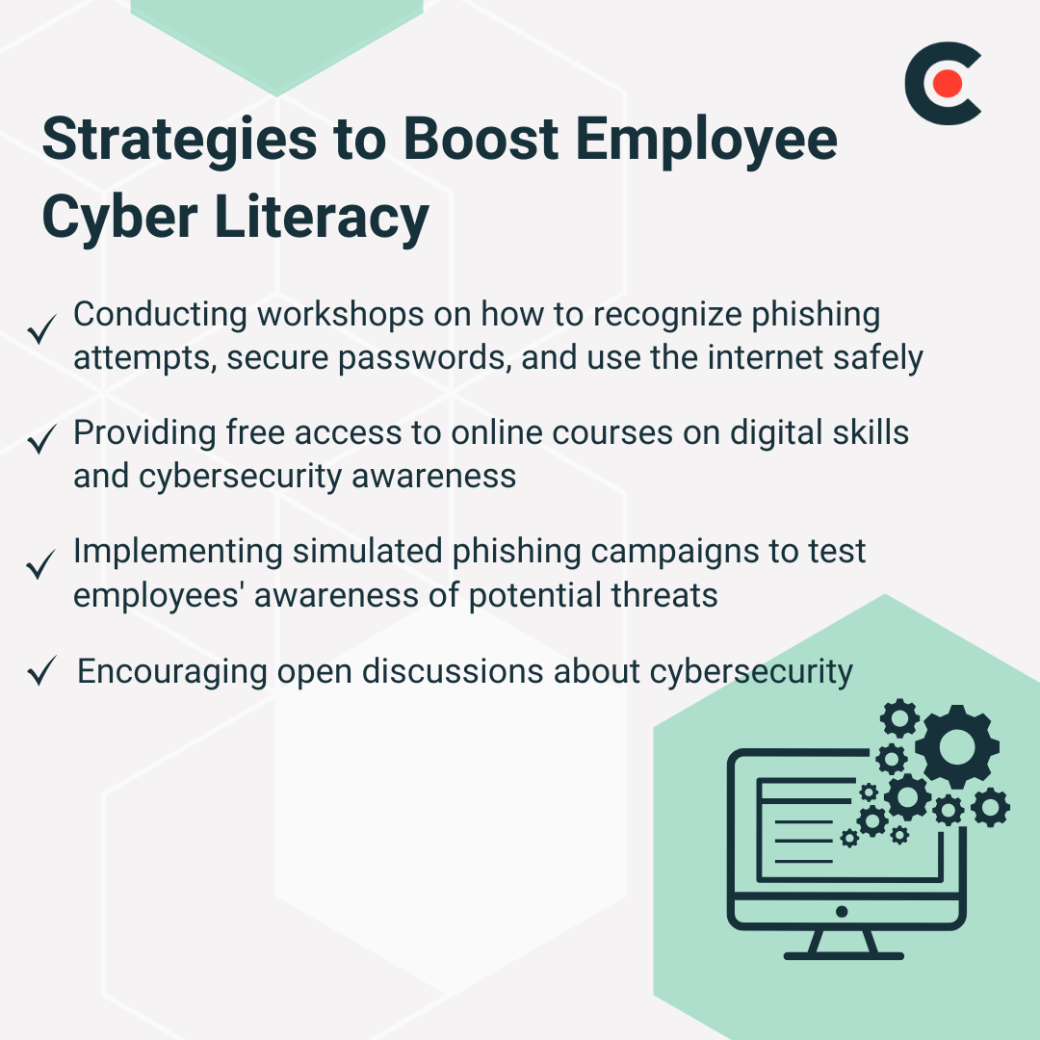

Updated March 13, 2025
Cybersecurity has come a long way from dealing with minor viruses to today’s complex malware. It's more important than ever for businesses to focus on cyber hygiene and cyber literacy training to empower employees to deal with threats proactively. Jane Frankland, CEO of KnewStart, dives into what’s next in the world of outsourced cybersecurity services.
When the first electronic digital computer was invented in the early 1940s, no one imagined cyberattacks would ever occur. Fast-forward to the 1970s, and we got ARPANET, the earliest form of the Internet. That’s when the first computer virus named “The Creeper” emerged.
Fortunately, Creeper wasn’t destructive—it was just a security test to see if it was possible to create a self-replicating program. Unfortunately, the results of that test mean that today, we deal with complex cyber attacks that can cause serious damage, such as malware and social engineering hacks.
Looking for a IT Services agency?
Compare our list of top IT Services companies near you
Cybercriminals get more creative every year, which is why it's critical for businesses to implement robust cybersecurity practices across systems, including cyber hygiene, cyber literacy, and cyber defense solutions.
Jane Frankland, CEO of KnewStart, gives her opinion on what’s next for outsourced cybersecurity services regarding the future of cybersecurity.

“We need to improve cyber hygiene and literacy, enhancing knowledge and awareness without becoming overwhelmed,” Frankland notes. “As technology continues to evolve, it’s clear how reliant we are on it. Many companies faced disruptions that resulted in lost revenue and customers.”
Let’s explore these concepts and understand how outsourced cybersecurity services can help businesses put them into practice.
Cyber hygiene is a code of conduct that organizations adopt to maintain the integrity of their digital ecosystems. It works similarly to personal hygiene. In the same way, we brush our teeth and wash our hands to prevent disease, cyber hygiene includes routine actions specifically designed to prevent cyberattacks, such as hacking, malware, phishing, and other threats.
With the hybrid work model becoming the new normal, good cyber hygiene is critical for enterprises. However, despite technological advancements, many organizations still face cyber hygiene problems such as outdated software, weak passwords, and poor data management. These practices make sensitive data and systems vulnerable to cyber threats.
This is why it’s important to take good hygiene measures. They create a strong defense against cyber threats, significantly reducing the risks for employees of falling victim. These can include:

Investing in employee education is the most effective way to benefit from these cyber hygiene practices. It will empower your employees to recognize potential risks regardless of their technical expertise.
Cyber literacy refers to the knowledge and skills an individual needs to navigate and use digital solutions safely. It includes identifying online threats, managing sensitive digital data, and efficiently leveraging technology for communication and collaboration.
From interns and entry-level employees to high-level managers and executives, cyber literacy has become an essential skill every employee should have. It helps the workforce recognize these attacks and deal with them proactively.
Cyber-literate employees are more likely to make informed decisions about using technologies. They’re better positioned to leverage different tools to streamline their workflows and increase productivity.
Let’s understand this with an example: A company introduces a new cloud-based project management tool. Employees who aren’t cyber-literate are likelier to share the tool’s access or sensitive information with unverified parties. They are also more vulnerable to responding to illegitimate phishing links.
On the other hand, cyber-literate employees could easily identify suspicious links and requests. They would be more careful with data sharing and their login credentials, using strong passwords and two-factor authentication methods for added security.
Businesses can implement a few strategies to boost employee cyber literacy and keep systems safe:

“Organizations must reject the mindset that “it won’t happen to me” because every entity is a target for various threat actors, including cybercriminals and state-sponsored attackers,” said Frankland. “As technology advances, especially with the rise of quantum computing, criminals are already preparing to exploit future vulnerabilities."
Today, many businesses hire outsourced cybersecurity services to let the experts protect their digital environments. This strategy is handy when you don’t have a cybersecurity team but instantly need to ensure cyber hygiene and cyber literacy within your workplace.
These service providers offer a range of solutions to educate employees on cybersecurity and help businesses protect their digital assets effectively. These include, but are not limited to:
While the digital revolution has unlocked more business possibilities, it has also provided more ways for cybercriminals to attack your systems. Whether you run a startup or a multi-million dollar enterprise, cybercriminals are always waiting to take advantage of gaps in your security.
The best cybersecurity measures will empower your workforce to identify and deal with threats proactively. Even a small cybersecurity incident can cause severe damage—not only to your finances but also to your reputation. You can easily prevent it by leveraging your resources to the fullest and focusing on employee training in cybersecurity.
However, not every business has the budget or resources to manage cybersecurity in-house. If you’re in the same boat, you can hire outsourced cybersecurity services to take the first step toward your organization’s security. These professionals will do all the heavy lifting for you so you can focus on scaling and growing your business.

Jane Frankland is a globally recognized cybersecurity expert, entrepreneur, and author, known for her extensive work in building effective cybersecurity strategies and fostering diversity in the tech industry. With over two decades of experience, she has advised top companies on risk management, threat intelligence, and incident response, helping them stay ahead of emerging threats.


